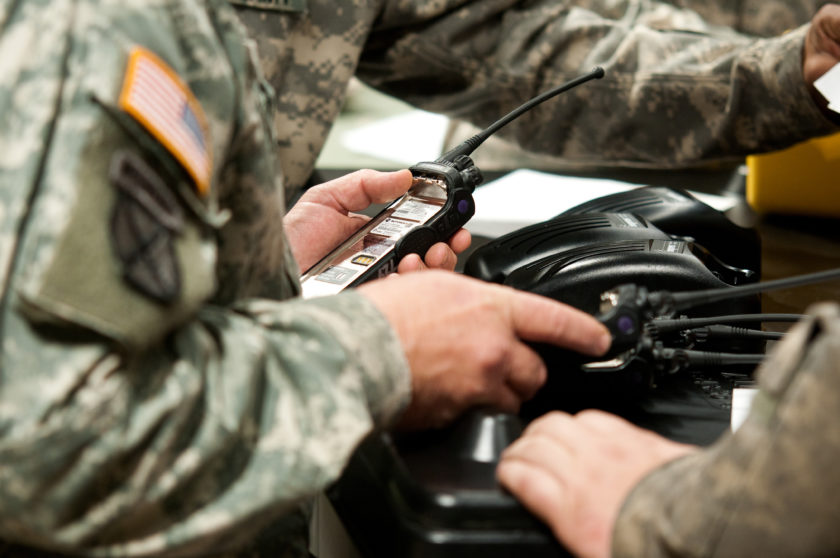

At its core, the Army’s “This is My Squad” initiative is essentially about getting soldiers to care about one another.
It’s about trying to get soldiers to talk to one another, and have important — and occasionally difficult — conversations about what’s going on in their lives, their backgrounds, and the challenges they face.
Compassion and empathy? Yes, there’s an Army program for that. And soon, there will be a leadership app as well.
In August, the Army described the “This is My Squad” app as a tool “to help leaders better connect with squad members and manage everyday tasks.”
Sergeant Major of the Army Michael Grinston said on Tuesday at the Association of the U.S. Army’s annual conference that the primary goal of the app is going to be sponsorship.
Grinston said that leaders could use the app to see who is coming to their unit, and get ahead of what they’ll need when they arrive.
“If I’ve got an app that helps me say, ‘Hey I’ve got [a soldier] coming to my unit, he’s got a family, he needs a house, he’s got kids that need to go to school.’ If I can use sponsorship and welcome you into my unit, that’s the number one priority of the This is My Squad app.”
So, it’s going to help leaders…do leadership?
The app is being worked on by Army Futures Command, according to an August press release; aside from training management and sponsorship, it will also help organize counseling.
The release says that Grinston has been discussing adding “a virtual counseling feature that allows NCOs to document counseling sessions with soldiers.”
“This is My Squad” often comes across as the Army’s go-to for fixing, well, most of its problems.
If soldiers really know and care about each other, the service’s thinking goes, they won’t stand by while another soldier gets sexually harassed; they’ll speak up if they see or hear racism; they’ll be there for one another, which will (ideally) lessen the risk of suicide.
“That’s what it means to be in your squad,” Grinston said in the August press release. “You don’t shy away from those things that are hard to talk about.”
